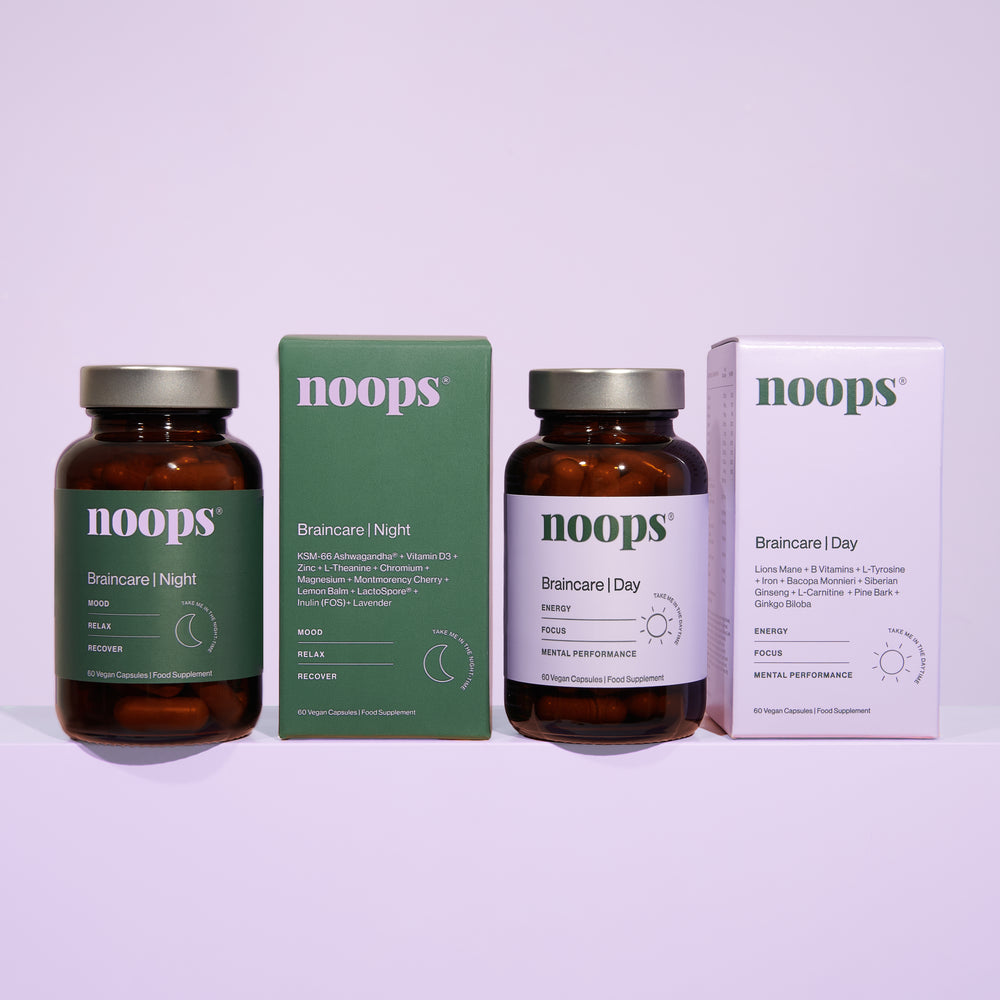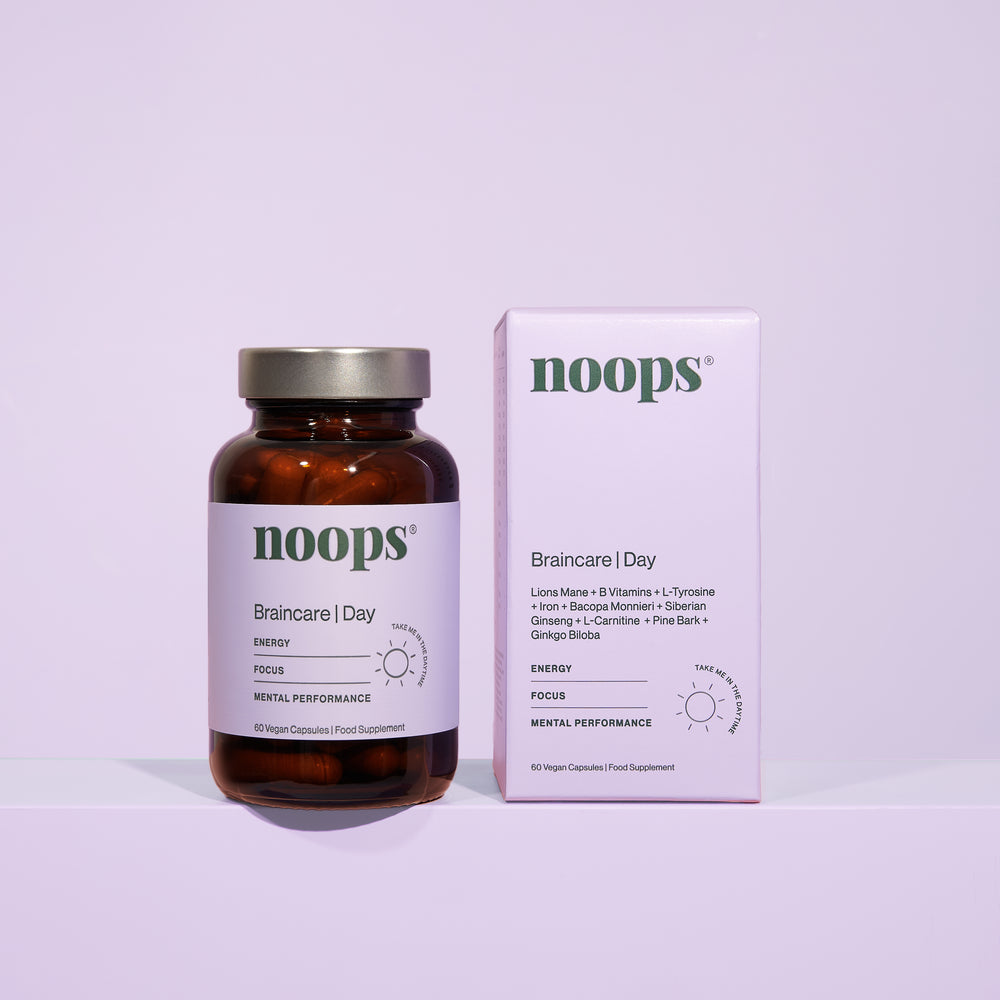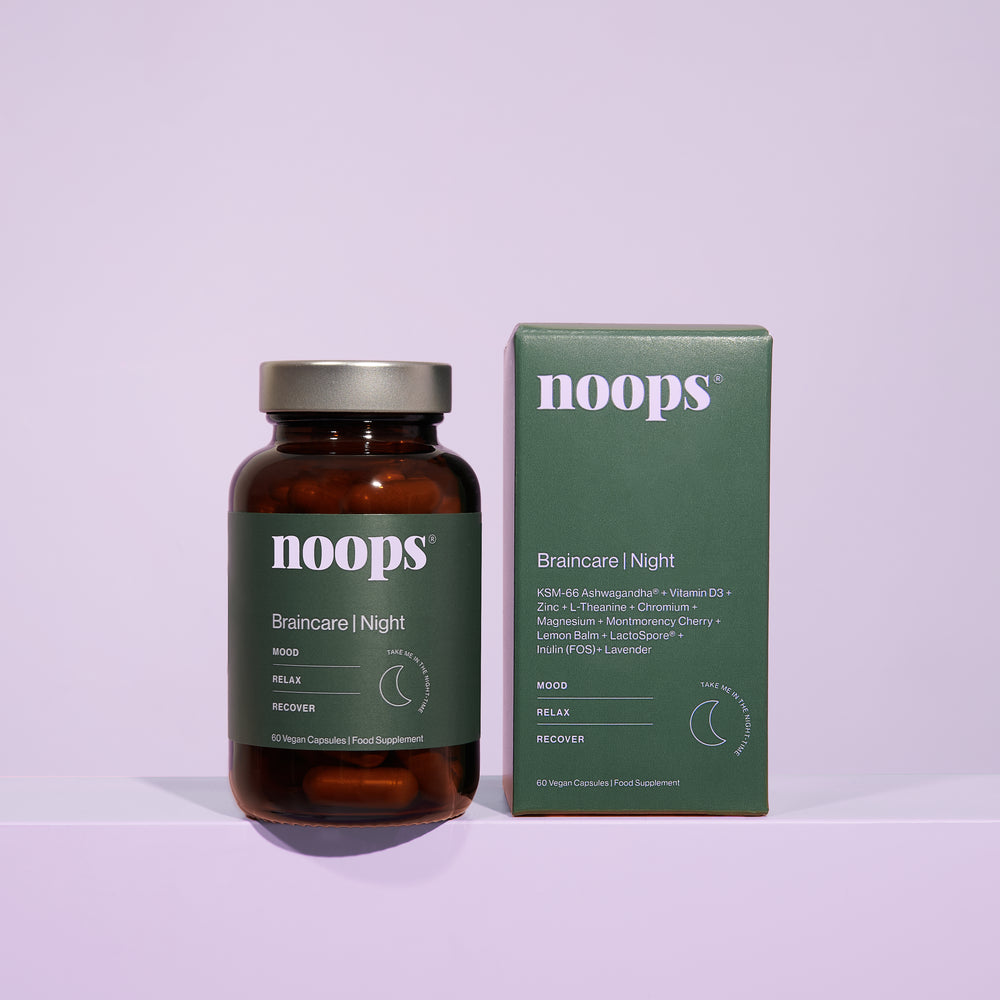Natural Ways to Support an ADHD Brain: What Might Help (and What Might Not)
Living with ADHD is different for everyone — and there's no one-size-fits-all solution. While medication can be incredibly effective for many, some people are also curious about natural ways to support their focus, attention, and emotional balance.
Whether you’re using prescribed support, exploring other options, or simply want to feel more in control of your day-to-day challenges, this guide is here to help you navigate some of the lifestyle tools and strategies that people with ADHD often consider — without the hype or unrealistic promises.
This blog is written especially for women navigating life with ADHD or similar traits — whether diagnosed or not. We’ll look at lifestyle supports, calming strategies, and the most commonly researched natural ingredients.
What Can Sometimes Help Support ADHD
These approaches don’t “fix” ADHD — but they may support some of the challenges it brings.
Omega-3 Fatty Acids (Especially EPA)
EPA is one of the most studied omega-3s for brain support. Some people find that consistent omega-3 intake helps with emotional regulation, focus, and mental energy.
Sources include:
-
Oily fish like salmon, sardines, and mackerel
-
High-quality omega-3 supplements (especially those with a high EPA content)
Mindfulness & Meditation
Even 5–10 minutes of mindfulness can help regulate emotions and quiet mental overstimulation. Sitting still isn’t required — walking meditations, fidget tools, or breathwork apps may feel more accessible.
Balanced Nutrition
There’s no perfect “ADHD diet,” but some people notice improvement when they:
-
Reduce sugar and processed foods
-
Eat balanced meals with protein, fibre, and fats
-
Avoid skipping meals to maintain stable energy
-
Stay hydrated
Sleep Support & Nervous System Regulation
Women with ADHD often struggle with winding down — especially after overstimulating days.
Helpful sleep strategies include:
-
Limiting screens in the evening
-
Creating a calming bedtime ritual
-
Using magnesium or herbal sleep aids
-
Keeping a consistent wake/sleep schedule
Natural Ingredients Often Explored for ADHD Support
Many adults with ADHD — especially women — are looking for ways to better understand and support their brains. While medication can be helpful for some, others are exploring natural approaches that work alongside their routines. From focus and mood to sleep and energy, there are a range of vitamins, minerals, and herbal extracts being studied for their potential to support brain function.
This guide breaks down some of the most commonly explored natural ingredients — and what current research or traditional use suggests about how they might support adult women navigating ADHD-related challenges like overwhelm, mental fatigue, emotional sensitivity, and focus.
B-Vitamins (B1–B12)
B-vitamins are a family of essential nutrients involved in energy production, neurotransmitter synthesis, and nervous system regulation. Specific forms like B6, B9 (folate), and B12 are especially relevant to mental performance and emotional stability.
Low levels of these vitamins have been observed in some individuals with attention or mood regulation difficulties. Supplementation may support overall mental energy, reduce brain fog, and improve resilience to stress — particularly during hormone fluctuations or times of emotional overwhelm.
B-vitamins also help convert food into usable energy, which can reduce fatigue — something many people with ADHD report struggling with.
Iron
Iron is crucial for oxygen transport in the blood and for maintaining healthy brain function. Low iron levels, especially ferritin (stored iron), have been associated with reduced attention, low mood, and fatigue.
In women, low iron is especially common due to menstruation, and it may contribute to brain fog, low motivation, or mood instability. Supporting iron levels through diet or supplements may promote improved concentration and energy.
It’s always important to test iron levels before supplementing, as too much iron can be harmful.
Magnesium
Magnesium supports the nervous system and plays a key role in muscle relaxation, sleep, and mood regulation. It is involved in over 300 biochemical processes in the body, including those related to stress resilience and neurotransmitter function.
Some research suggests magnesium deficiency may contribute to restlessness, sleep disturbances, and irritability — common experiences for people with ADHD. Supplementing magnesium, particularly in a bioavailable form (like glycinate or citrate), may help promote calmness, focus, and improved sleep quality — particularly for women who struggle with premenstrual symptoms or sleep anxiety.
Zinc
Zinc is an essential trace mineral that supports brain health, immune response, and the function of neurotransmitters like dopamine — which plays a role in motivation, attention, and reward pathways.
Several studies have identified lower zinc levels in people with ADHD, especially children. Zinc supplementation may support mood stability, memory, and emotional regulation. It’s also thought to influence how the body responds to stimulants, and some clinicians suggest zinc as a complementary support to traditional interventions.
Zinc is also important for gut health, which can indirectly affect mental wellbeing through the gut-brain axis.
Vitamin D3
Vitamin D3, the sunshine vitamin, is involved in immune regulation, mood balance, and brain development. Many people in the UK are deficient — particularly in the winter months.
There’s growing interest in the role of vitamin D in mental health, with some studies noting a link between low vitamin D levels and attention challenges or low mood.
While vitamin D alone isn’t a solution, supporting healthy levels may help with emotional resilience and overall brain function.
Chromium
Chromium is a trace mineral that helps regulate blood sugar levels. For people who experience energy crashes, mood swings, or irritability throughout the day, chromium may help stabilise glucose levels and support more consistent energy and mental clarity.
Balanced blood sugar can have a knock-on effect on focus and emotional regulation, making this a potentially useful support ingredient for those who experience dysregulated energy or impulsive eating patterns — something many women with ADHD relate to.
L-Theanine
L-Theanine is a calming amino acid found naturally in green tea. It promotes a state of "calm alertness" — improving focus while reducing overstimulation. Unlike sedatives, it doesn’t cause drowsiness and may work synergistically with caffeine to smooth out energy.
For people with ADHD or sensory overwhelm, L-theanine may help reduce racing thoughts, ease transitions, and support focused work sessions. It’s also commonly used for managing pre-sleep anxiety.
Ashwagandha
Ashwagandha is a traditional adaptogenic herb known for supporting the body’s stress response. It helps regulate cortisol, which is the hormone released during stress and overstimulation.
While it’s not specific to ADHD, ashwagandha may be helpful for those who experience emotional reactivity, burnout, or mental fatigue. It’s also been studied for its ability to support memory, focus, and resilience when taken consistently over several weeks.
This can be especially helpful for women managing the emotional load of daily life, careers, families, and hormonal fluctuations.
Rhodiola Rosea
Rhodiola is another adaptogen, traditionally used to improve stamina, focus, and mood. It’s often described as a mental energiser that helps the brain cope with demands — especially during periods of stress, fatigue, or low motivation.
Some studies have shown that Rhodiola may enhance attention span and mental clarity in stressful environments. It can be stimulating for some, so morning use is recommended.
Bacopa Monnieri
Used in Ayurvedic medicine for centuries, Bacopa is a herbal extract that supports memory formation, learning speed, and information processing.
It works gradually — with benefits often appearing after 4–6 weeks — and is commonly used in nootropic blends aimed at focus and clarity. Some research suggests it may be especially beneficial for supporting working memory in neurodivergent individuals.
This may be particularly supportive for women juggling multiple roles who experience forgetfulness, mental fatigue, or brain fog.
Lion’s Mane Mushroom
Lion’s Mane is a medicinal mushroom gaining popularity for its neuroprotective and nootropic properties. It’s thought to stimulate nerve growth factor (NGF), which supports brain plasticity and cognitive resilience.
Though research is still emerging, Lion’s Mane may support long-term brain health, memory, and clarity. It’s especially interesting for those seeking natural cognitive support without stimulation.
Ginkgo Biloba
Ginkgo has long been used to support memory, circulation, and cognitive stamina. Some research shows that it may help with sustained attention, particularly in combination with other cognitive-support ingredients.
It’s thought to improve blood flow to the brain, which may aid mental alertness — although responses vary between individuals.
Montmorency Cherry
This tart cherry variety is rich in natural melatonin precursors and antioxidants. It’s often used to support sleep quality, particularly in people who struggle with falling or staying asleep.
For individuals with ADHD who experience delayed sleep onset or restless nights, Montmorency cherry may offer gentle, natural support without sedating effects.
It’s a popular option for women who struggle with hormonal sleep disruption or overstimulation at night.
Lemon Balm
Lemon Balm is a calming herb traditionally used to soothe nervous tension and promote relaxation. It may help support emotional balance and restfulness, especially when included as part of a bedtime routine.
Some people also use it during the day to ease anxious thoughts or overstimulation.
Lavender
Lavender, whether in oil, extract, or tea form, is widely known for its calming properties. It’s been studied for its potential role in reducing restlessness, improving sleep quality, and supporting mood.
For neurodivergent women who experience sensory overload, sleep disturbances, or emotional overwhelm, lavender may be a gentle and supportive option.
What Might Not Be as Helpful as Promised
Unregulated Supplements with Big Claims
Avoid products that promise to “cure” ADHD or dramatically boost IQ. Look for transparency, evidence-based doses, and realistic claims.
Over-Restrictive Diets
Unless medically necessary, cutting out entire food groups can backfire. Focus on nourishing your brain and body, not controlling it.
Productivity Hacks That Don’t Honour Your Brain
What works for others may not work for you. That’s okay. If a time-blocking app, planner, or “system” adds stress — drop it. Gentle structure > rigid rules.
Final Thoughts
Every ADHD brain is different — and so is every support strategy. The goal isn’t perfection. It’s feeling a little more in control, a little more understood, and a lot more supported.
Whether you’re a woman juggling family, work, overstimulation, emotional waves, or executive function challenges, know this: you're not broken. You're just wired differently — and that wiring deserves respect, not repair.
If you're exploring natural ways to support your focus, clarity, and calm, we hope this guide gave you something useful to consider — and the encouragement to find what works best for you.



